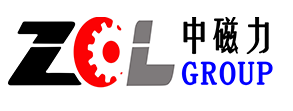## Understanding Large Synchronous Motors for Pump Systems
Large synchronous motors play a crucial role in pumping systems, commonly utilized in various industries like water treatment, oil and gas, and chemical processing. These motors are designed to operate at synchronous speed, meaning they run in sync with the frequency of the electrical power supply, fostering efficiency and reliability.
At the heart of a large synchronous motor lies its key components, which include the rotor, stator, excitation system, and control circuitry. The stator consists of a series of windings, created from coils of wire, that generate a rotating magnetic field when an alternating current (AC) passes through. This rotating field interacts with the rotor, which can be either a wound rotor or a permanent magnet rotor, effectively causing the rotor to spin at the same speed as the magnetic field. This synchronous behavior eliminates slip, leading to high efficiency in energy consumption.
The excitation system is vital for providing the rotor magnetic field, often achieved with direct current (DC). This component not only enhances torque production but also enables the motor to maintain a consistent speed under varying loads. The control circuitry regulates various operational functions, including speed control, starting conditions, and protective measures like overload and heating safeguards.
Advanced technologies, such as variable frequency drives (VFDs) and sophisticated control algorithms, play a pivotal role in improving the performance of large synchronous motors. These innovations facilitate precise speed adjustments and enhance energy efficiency, which is critical in modern manufacturing environments where operational costs and sustainability are of utmost importance.
For practical example, consider a large synchronous motor employed in a water treatment facility. In such a scenario, the motor drives pumps that move large volumes of water through filtration systems. With advanced control technologies in place, operators can adjust the motor's speed to optimize energy use depending on the fluctuating demand for treated water, thus minimizing waste and enhancing efficiency.
Additionally, industries like petrochemicals often deploy large synchronous motors to drive compressors and pumps in their processes. These motors provide the robustness and reliability essential for handling challenging operational conditions, ensuring that production processes run smoothly and efficiently.
In conclusion, large synchronous motors for pump systems embody advanced technology that not only enhances productivity but also promotes energy-efficient practices in modern manufacturing. If you're interested in learning more about these systems or exploring potential suppliers, please do not hesitate to contact us.
